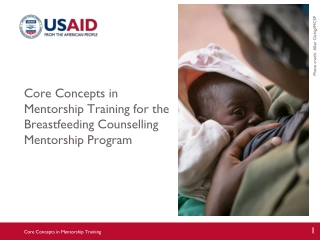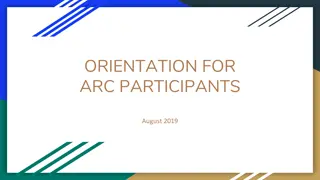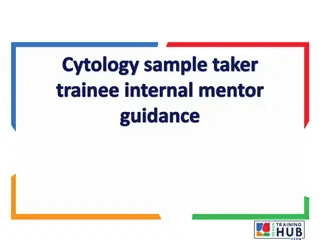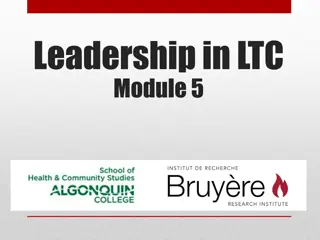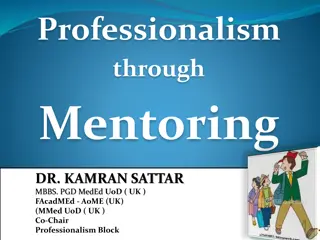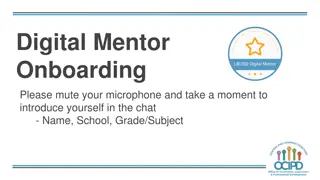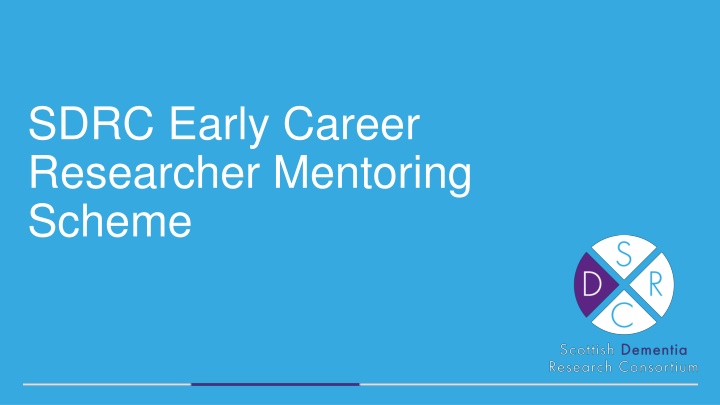
Mentoring: Benefits, Models, and Roles
Explore the world of mentoring, its benefits for mentors, mentees, and organizations, various mentoring models, and the roles of mentors and mentees. Learn about the importance of trust, commitment, and communication in successful mentoring relationships.
Download Presentation

Please find below an Image/Link to download the presentation.
The content on the website is provided AS IS for your information and personal use only. It may not be sold, licensed, or shared on other websites without obtaining consent from the author. If you encounter any issues during the download, it is possible that the publisher has removed the file from their server.
You are allowed to download the files provided on this website for personal or commercial use, subject to the condition that they are used lawfully. All files are the property of their respective owners.
The content on the website is provided AS IS for your information and personal use only. It may not be sold, licensed, or shared on other websites without obtaining consent from the author.
E N D
Presentation Transcript
SDRC Early Career Researcher Mentoring Scheme
What does mentoring involve? One-to-one conversation Confidentiality Appreciation Attention Ease space to think Empathy Trust Listening . Listening is not.. Assuming you know what the other person is going to say next Waiting your turn to speak Interrupting Assuming the mentor is there to give advice and impart their knowledge
Benefits of mentoring For the Mentee... Mentoring provides a safe haven to explore professional development and work- based issues. For the Mentor... Mentoring is a great opportunity to develop skills in developing others. For the organisation... Mentoring supports the retention and attraction of people to the organisation
Structured model: Developmental model: Mentee as prote ge (patronage) Importance of hierarchical gap between mentor and prote ge Gifting and opportunities and advice giving is prominent Tend to choose a mentee who is like them Often focused on organisation needs Do as I did and you too will do well Encourages mentee to do things herself/himself Mentor encourages autonomy and self development, identifying not providing opportunities for development Recognition of value for both parties - mutuality of learning Mentee in driving seat No line of accountability It s about experience not hierarchy
How does mentoring work? Action planning New Exploration understanding
Quality of relationship = success Managing expectations Building trust through rapport Authentic connection Commitment Doing what you say you will
The role of a Mentor Sounding Board Role Model Challenger Career Counsellor Development Advisor Professional Advisor Critical Friend Networker / Facilitator Your role as a mentee Respect the time Be honest in your thinking Be committed to your learning Prepare for each session Make up your own mind Undertake tasks Manage the admin Responsibility Mentor = what happens within the mentoring conversation. Mentee = what happens between sessions.
What to expect.. Empathy Constructive challenge / stretching Sharing of experience Confidentiality Friendliness Help with understanding Help in building networks A sounding board Listening Building trust through rapport Trust Focus Empathy Connection Empowerment
Phases of the relationship Intensity of learning and value added Time
Common themes People stuff: Dealing with a difficult boss/supervisor Dealing with demanding and difficult colleagues/ patients /collaborators Getting on: Building networks How to advance within academic medicine/medical research Balance and health: Work-life balance Managing family and home commitments Dealing with stress and burnout
Key ingredients of a session Be prepared for the session Find a space undisturbed Focus on your learning Think through all that is going on Take advice and guidance if you need it Agree actions to take forward Reflection on your learning The arrangements 6 mentoring sessions either face to face or remotely done. Over the course of 18 months Distribute them appropriately Typically 1 hour long Get dates in the diary ASAP
Top Tips Mentees Identify a goal / area to change Value the sessions Act on tasks between sessions Reflect on your learning / raise your awareness (noticing how you do things) Pace your self and recognise it takes time to embed the learning Further reading The Mentoring Manual Julie Starr Coaching For Performance Sir John Whitmore Techniques for Coaching and Mentoring David Megginson & David Clutterbuck Everyone Needs a Mentor David Clutterbuck Time to Think Nancy Kline

